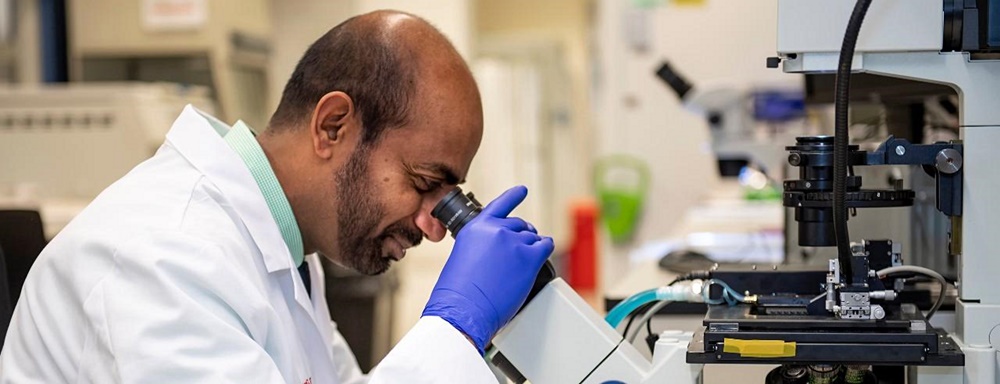Last Updated on: 18th December 2024, 12:32 pm
Muscle recovery is the process through which muscles repair and strengthen after exercise. It’s essential for enhancing performance and preventing injuries. Without adequate recovery, the risk of strain and fatigue increases, affecting fitness goals. This phase is as crucial as the workout itself, ensuring you return stronger.
Protein is central to muscle recovery. It repairs muscle fibers damaged during exercise and acts as the building block for new muscle tissue, facilitating growth and strength. Without sufficient protein, the body struggles to repair and build muscle effectively. Incorporating adequate protein into your diet is essential for optimizing your fitness regimen.
Understanding Proteins and Their Functions

Proteins are crucial for almost every biological process. They are large, complex molecules made up of amino acids, essential for bodily function. In muscle recovery, their role is significant.
- Animal proteins, found in meat, dairy, and eggs, contain all nine essential amino acids.
- Plant-based proteins, from beans, lentils, and nuts, often need to be combined to form a complete protein profile.
A well-rounded diet ensures the necessary proteins for muscle repair and growth are accessible.
Proteins repair micro-tears in muscle fibers caused by exercise, aiding recovery and building stronger muscles. Consuming adequate protein accelerates this process, making it a critical component of any fitness diet. Muscle protein synthesis is key to muscle growth. By consuming the right proteins, we recover faster and maximize workout gains.
Understanding proteins’ role in muscle recovery helps achieve fitness goals. By incorporating various protein sources into our diets, we support our bodies’ repair mechanisms, ensuring stronger returns with every workout. Protein is the building block of muscle recovery and growth.
The Science Behind Protein and Muscle Recovery

Muscle recovery involves proteins repairing microscopic damage from exercise. Proteins mend micro-tears, facilitating recovery and growth.
Protein synthesis transforms amino acids into new muscle tissue. The efficiency of this process influences recovery speed and muscle strength.
- Essential amino acids, which the body cannot produce, are crucial for muscle recovery.
- A diet rich in high-quality proteins ensures a steady supply of these amino acids, optimizing recovery.
Protein quality matters. A diverse intake from animal and plant sources provides a full spectrum of amino acids, fueling muscle repair and growth.
The interplay between protein intake and muscle recovery highlights the body’s ability to heal and strengthen. Prioritizing protein in our diets supports natural repair processes, preparing us for future challenges. Protein is the cornerstone of muscle recovery, empowering fitness progress.
Optimal Protein Intake for Muscle Recovery

Optimal protein intake is crucial for muscle recovery. Recommended intake varies by activity level. Sedentary individuals should aim for 0.8 grams of protein per kilogram of body weight daily, while those in moderate to intense training may need up to 2.0 grams per kilogram to support muscle repair and growth.
Timing of protein intake is important. Consuming protein shortly after a workout—within a 45-minute window—enhances muscle repair. This timing takes advantage of the body’s anabolic state, promoting efficient protein synthesis and recovery.
Balancing protein quantity is key. While adequate protein is essential, excessive intake can strain the kidneys and lead to dehydration. Staying within the recommended range ensures benefits without risks. It’s about finding the right amount for your body and fitness goals.
Incorporating a variety of protein sources, including animal and plant-based proteins, ensures a comprehensive amino acid profile, supporting muscle repair and growth. Understanding and applying these principles optimizes muscle recovery, enhances performance, and achieves fitness objectives effectively.
Protein Sources and Muscle Recovery

Animal proteins offer all essential amino acids, facilitating swift muscle repair. Plant-based proteins require a mix to achieve a complete amino acid profile but offer additional benefits like fiber and antioxidants.
Protein supplements provide a convenient source of essential amino acids, especially post-workout. Whey protein is known for rapid absorption, speeding up recovery. However, supplements should complement, not replace, whole foods.
Whole foods offer a broad spectrum of nutrients beyond protein, aiding recovery and health. Supplements, while efficient, lack this diversity. A balanced approach, prioritizing whole foods and using supplements when necessary, is optimal for muscle recovery and growth.
Understanding protein sources—animal vs. plant-based, whole foods vs. supplements—is crucial for optimizing muscle recovery. A strategic approach, incorporating various protein sources and considering intake timing, enhances muscle repair, growth, and fitness performance.
Enhancing Muscle Recovery: Beyond Just Protein

A balanced diet supports muscle recovery. Various nutrients repair tissue, reduce inflammation, and replenish energy.
- Carbohydrates: Restore glycogen levels.
- Fats: Provide essential fatty acids for hormone production and cellular repair.
Hydration is crucial for nutrient transport and inflammation management, aiding muscle repair.
Sleep is vital for recovery, with growth hormone release and tissue repair occurring during deep sleep.
Other nutrients play key roles:
- Magnesium and Potassium: Support muscle function and prevent cramps.
- Antioxidants from fruits and vegetables: Combat exercise-induced oxidative stress.
- Omega-3 fatty acids from fish or flaxseeds: Reduce muscle soreness.
- Vitamins C and D: Integral to collagen synthesis and immune function, respectively.
A holistic approach to nutrition, hydration, and rest orchestrates efficient muscle recovery, leading to quicker bounce-backs and improved performance.
Summing Up
Protein powers muscle recovery. This nutrient is the cornerstone of resilience in fitness. By embracing a diet rich in diverse protein sources, we fuel our bodies for repair, growth, and enhanced performance. The journey from recovery to strength underscores the importance of balance—between protein types, intake timing, and the synergy with other nutrients. Let’s commit to nourishing our bodies, recognizing protein’s pivotal role in not just recovering, but thriving in our fitness endeavors.

